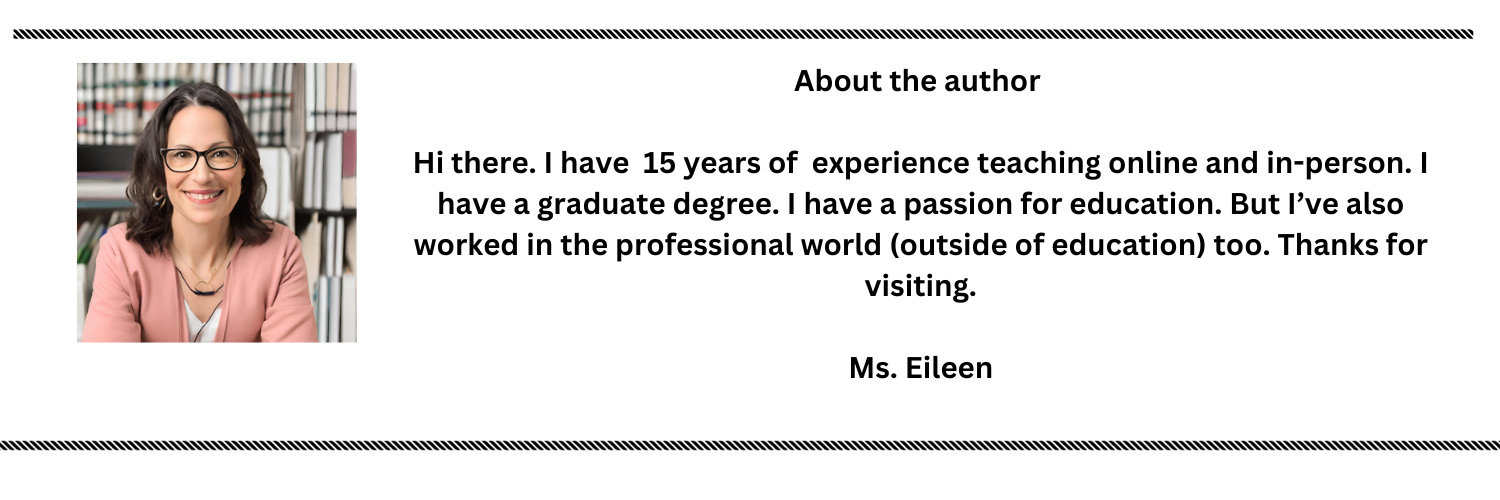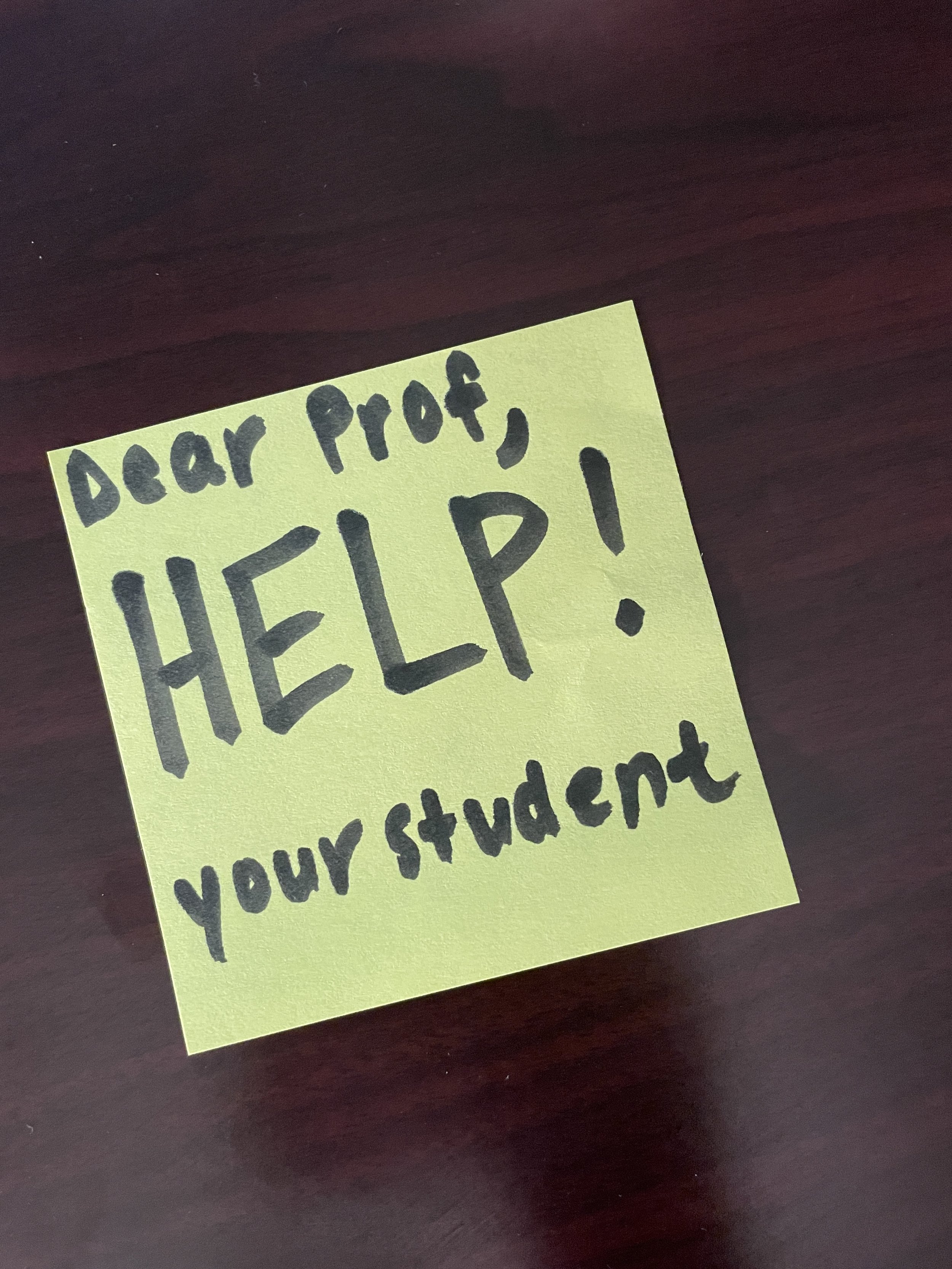It feels ILLEGAL to know this trick to get out of a presentation
TABLE OF CONTENTS (jump ahead)
How to get out of giving a class presentation
You may be able to get out of a school presentation if you have a documented disability that is protected by Title II of the Americans with Disabilities Act of 1990 and the presentation is not an integral part of the course. Schools and colleges are required to provide reasonable accommodations to students with recognized disabilities, and you might qualify. However, there might be some circumstances where you can’t avoid a presentation, even with an accommodation.
NOTE : This information is relevant to students in the United States and may not apply to all countries, all colleges or students.
This is the best way to help high school or college students trying to get out of class presentations. I went directly to a college and asked them for information about their accommodations so read on to find out how it might work for you.
I’m scared of doing a class presentation
If you are scared of doing a class presentation, realize you are not alone. Talk to your professor about your fears and work on a solution. There are some virtual reality programs where you could work on your presentation skills.
You read the syllabus and realize you must do an oral presentation. You start to panic. You worry you'll have stage fright or too much nervous energy to get in front of the class and be the center of attention.
So, you start wonder how you’ll avoid this presentation.
Can you switch classes?
Can you drop the class and take it with another professor next semester?
Can you skip the presentation and still make a good grade?
All these things cross your mind, but you realize you can’t do anything about it, or can you?
Public speaking is a common fear. I asked college students, and an overwhelming 88% had some anxiety around oral presentations with students saying things like, “I’m worried what people will think of me,” or “I am scared I’ll mess up and freeze.”
In my own college classes, where students have presented, I have seen people get extremely anxious. One time a student thought she was going to pass out and had to be helped back to her desk in the middle of her presentation.
She couldn’t finish it.
If you find yourself having this crippling fear, I have some solutions for you on how to get over your nerves.
But in this article, I am going help you understand some of the excuses to get out of a presentation and how to talk to your professor about your anxiety.
Don’t be afraid to talk to your professor about your mental health because it can impact your college coursework. It’s not something you should take lightly.
I don’t want to do a class presentation
If you have to do a class presentation in college, you need to take a deep breath and realize that most of your peers will also be anxious to present in front of everyone. You should definitely do the presentation and avoid skipping out on it. Face your fears because it can help you be more confident the next time you have to present.
It has been discovered from surveys that the fear of public speaking is very common. And it is even estimated that more people are afraid of public speaking than death itself.
According to the National Institute of Mental Health, around 73% of the population are afraid of public speaking. It is a common phobia.
You aren’t alone. It seems completely normal to have presentation anxiety.
Some psychologists have agreed that the fear of public speaking might be instinctual. Humans used to live in tribes and being rejected from our peers sometimes meant death. You needed your tribe to survive oftentimes. You can equate this to a survival skill because they did not want to be vulnerable to rejection and get cast out.
There is more to it than that, but I am trying to explain how you aren’t different than most people. And because you are scared to present doesn’t mean that there is anything wrong with you.
Pretty interesting stuff.
How to get out of a college presentation
If you want to get out of a college presentation, you need to have a legitimate excuse. If you have a medical diagnosis that may prevent you from presenting, you could check with your college’s disability office and see if you could get a reasonable accommodation.
Public speaking fears are common therefore it is expected that you will have some uneasiness so don’t immediately try to run from your fear.
You really should only seek out help from your professor if you have been diagnosed with a condition that makes presenting impossible.
And if you haven’t been diagnosed, you should seek assistance from someone who can assess you.
But for people who have a medical diagnosis, accommodations are going to be your best bet. The federal government has something called Title II of the Americans with Disabilities Act of 1990.
You have rights in college regarding health conditions, so you should check with your college’s disability service office and find out more.
Now, you might not be able to completely avoid the presentation, but if you have accommodations through your school’s services, at least it is documented that you have a psychiatric illness and maybe your teachers are more likely to work with you.
If you don’t have accommodations already, you should see if you qualify.
They aren’t retroactive so you can’t go back and expect the school to do anything different regarding previous things that have happened. They are only effective when you officially got them.
Can a professor force me to do a presentation?
A professor cannot force a student to present however the student could hurt their grade in the class if they don’t present. Sometimes skipping a presentation could lead to a failure in the course.
I reached out to an accredited college and talked with them about their accommodations around presentations and this is what they said.
If someone has a psychiatric illness that gives them social anxiety, and they have accommodations surrounding this disorder, then they may avoid presentations in certain classes. For example, if you are taking a sociology course and presentations are required and aren’t an integral part of the course, then your professor should try and modify it.
For example, maybe they could offer an individual presentation or recorded presentation instead.
But the college said that sometimes it might not be possible. For example, if it were a speech class, and it’s an integral part of the course, it might not be avoidable. This would depend more on your professor.
The best case scenario for you is to meet with your disability services. If you don’t have accommodations, try getting them. If you don’t have the documentation to get the accommodations, you need to find out if you have a disorder that can be diagnosed first.
Tips to talk to your professor about getting out of a presentation
1.) Be honest. Go to their office (preferably in person) and talk to them about your anxiety. Discuss your concerns. Don’t be afraid to talk to them.
2.) Explain - Tell your professor that you have tried to overcome your fear and explain what you’ve tried. You want your professor to know that you’ve tried to overcome your fears and anxiety and present, but can’t.
3.) Give them a solution – Don’t just say, I have anxiety and cannot present, but give them some solutions. You might say something like, can you consider an alternative assignment? Is there a way I could present in a classroom with only you present, or could I record my presentation?
4.) Seek help - Find out if your college offers any personal or mental health counseling. They might have some free support services that could help you address your fear of public speaking.
You can see that there are several steps to discussing your fear with your professor. Do not expect your professor to accommodate you unless they must because of your accommodations. But hopefully you can at least share your concerns and get some feedback from your professor.
Things to consider
Understand that getting accommodations may not mean that your professor must do anything at all. This entirely depends on the circumstances. If you do have accommodations, you will want to speak with your college’s disability services’ office to ask about this possibility.
And lastly, make sure you are only trying to get out of the presentation because you simply cannot overcome this fear. And it’s something you have tried to overcome. I am sympathetic to this anxiety, but know most people present without any issues, even with anxiousness.
Don’t lie. Be genuine, and if you need truly need accommodations, get those. If you need medical treatment for your anxiety, seek it.
Should I just skip a class for a presentation?
No, you should not skip class just to avoid a presentation. There are lots of positive things you can learn by doing your class presentation. You could miss out on a grade and risk failing the class. If you skip class just to avoid a presentation, you are not gaining the confidence you need later in life. The more you do public presentations, the better and more comfortable you will get.
In your job, you’ll need these oral presentation skills and you are missing an opportunity to build these skills when you skip a presentation. Finally you want to support your other classmates too.
Look, I hope you can overcome your fear and do the presentation. To help you, I have created an article dedicated to helping you get over your fears and present like a boss.
Anxiety support
If you need assistance for anxiety, panic disorders, depression, etc., you can seek assistance from the National Suicide Prevention Lifeline at 1-800-273-8255.
Note : I am not a disability services expert so please use discretion and remember that there are a lot of variables that will impact your outcome. This is not professional, medical, or legal advice and is for informational purposes only. Your results may vary.
FEATURED POSTS YOU’LL LOVE

